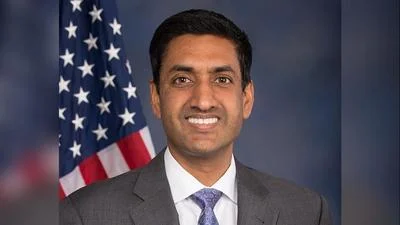John Taylor, Professor of Economics at Stanford University and developer of the "Taylor Rule" for setting interest rates | Stanford University
John Taylor, Professor of Economics at Stanford University and developer of the "Taylor Rule" for setting interest rates | Stanford University
In the early morning hours of Nov. 13, 2022, a killer broke into a home in Moscow, Idaho, and stabbed four college students as they slept. The brutal quadruple murder stunned the nation and captivated true crime enthusiasts, including podcasters and TikTok sleuths who traveled to Moscow to analyze the case for their digital audiences.
“I started to wonder if the podcasters and social media influencers there looking at this crime were negatively impacting the police investigation,” said Kyleigh McPeek, ’24. “I felt like there was this meta story here about the true crime industry and how it’s impacting the legal processes of the crimes they’re covering.”
At Stanford University, McPeek and journalist Grace Carroll, ’24, began researching the ethical, legal, and cultural impacts of the true crime podcast industry for a thesis project supported by Honors in Arts and the Bill Lane Center for the American West. Their findings are now presented in a six-part podcast series called "True Crime Podcast Podcast," which debuted on Sept. 8.
True crime is an expansive media genre popular among podcasters and social media influencers. Followers often help look for clues or brainstorm theories, creating an unofficial investigation. “What happens when you bring that kind of activity to these online platforms is that audiences can easily participate in the investigation. There isn’t the same barrier to entry that exists in traditional journalism,” McPeek said.
Such widespread media scrutiny can lead to misinformation or false accusations. For instance, one popular TikTok user publicly claimed that a University of Idaho professor was involved in the Moscow murders, resulting in a defamation lawsuit.
“Police would say that the more eyes on a case, the better because it helps them solve crimes,” McPeek noted. “But it can also redirect police resources to people trying to disrupt the scene of the crime.”
Because true crime content is often created for entertainment rather than public interest or safety concerns, it can potentially make it difficult for courts to assemble unbiased juries. This threatens constitutional rights to a fair trial.
“You need jurors who don’t have information about a case prior to coming into the courtroom because their decision-making process is supposed to be based only on evidence presented in court,” McPeek stated.
McPeek and Carroll began investigating this influence but found limited scholarship due to podcasts' relatively recent emergence as a platform. During their senior year at Stanford, they spoke with dozens of sources including media and legal scholars, journalists, neuroscientists, true crime podcasters as well as relatives of victims like Sarah Turney whose podcast led police to reopen her sister's unsolved murder case.
The pair also interviewed Amanda Knox who was wrongly convicted in Italy during her time abroad; she has since become a podcaster discussing issues related to true crime media.
“She’s now a podcaster who talks about issues related to true crime and she was very generous in sharing her experience with this sort of media,” McPeek shared.
With numerous recorded interviews available at their disposal Carroll & McPeeks decided podcasting itself would be best suited medium given its alignment both subject matter-wise & audience reach-wise too hence giving rise towards "True Crime Podcast Podcast."
The series utilizes various storytelling formats from journalistic serial narrative styles more casual conversational ones exploring tropes subliminal production methods used within typical True-Crime podcasts such sound effects music hosts vocal presentation etc., creatively integrating these elements throughout episodes themselves according co-creator Grace Caroll adding “We had idea play around presenting some research findings very subliminally through production formatting own podcast episodes really exciting creatively”.
While addressing real-life crimes within context each episode doesn’t center primarily upon those incidents instead focusing impact coverage those cases exert upon society-at-large explained further by Ms.Mcpeeks stating succinctly: "It’s True-Crime-Podcasts forming crux every storyline".
Carroll-McPeeks spent over year developing project involving extensive research writing editing producing entire series recording all six episodes studio located inside Stanford premises adhering strictly Journalistic codes ethics conducting interviews crafting final product intended entertaining compelling emotionally engaging scary just typical any other successful ‘true-crime’ show might aim deliver according Ms.Carroll herself!
Contrasting quantitative analysis conducted during earlier academic pursuits scrutinizing intersectionality between societal norms economic factors legality surrounding phenomena studied provided unique qualitative insights revealing broader implications affecting perceptions truth justice culturally economically legally observed Ms.Mcpeeks keenly summarizing thus...
So how do both creators define overall influence wielded by True-Crime Media Industry across global landscape ultimately whether beneficial detrimental net effect? Tune into concluding episode find out awaits eagerly anticipated verdict revealed right end sixth installment shared intriguingly Ms.Carroll keeping listeners hooked till very last moment!!




 Alerts Sign-up
Alerts Sign-up